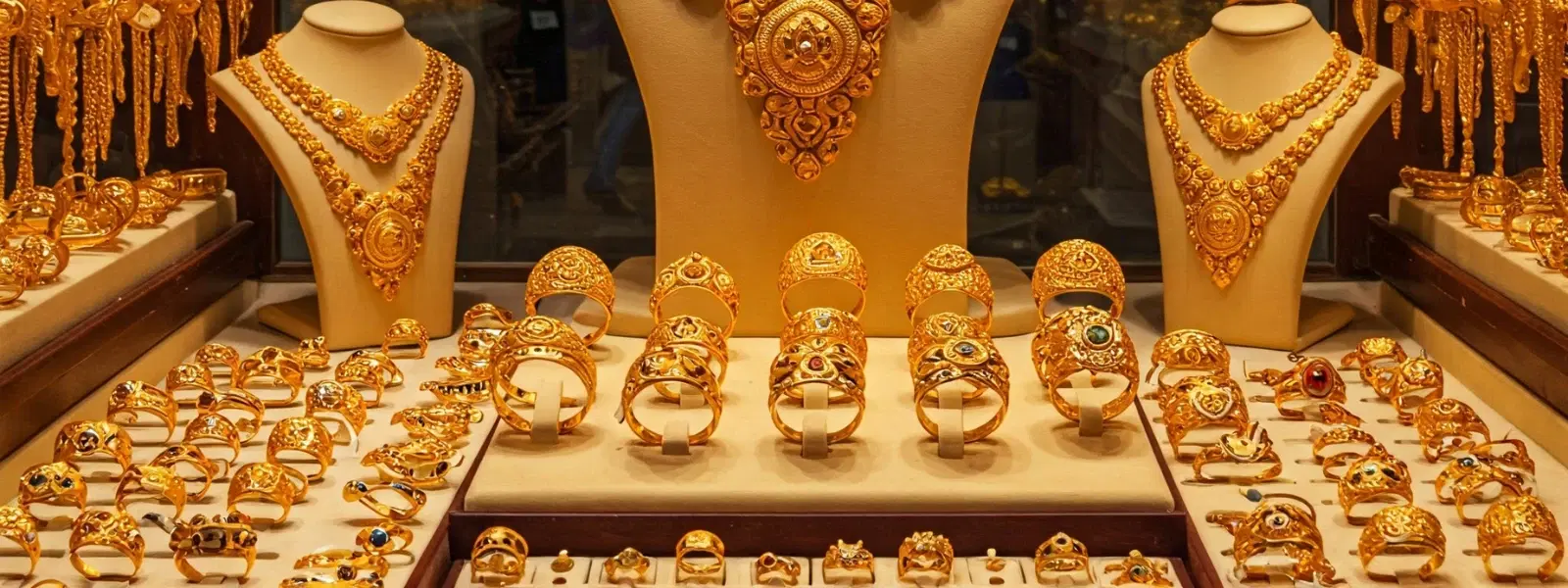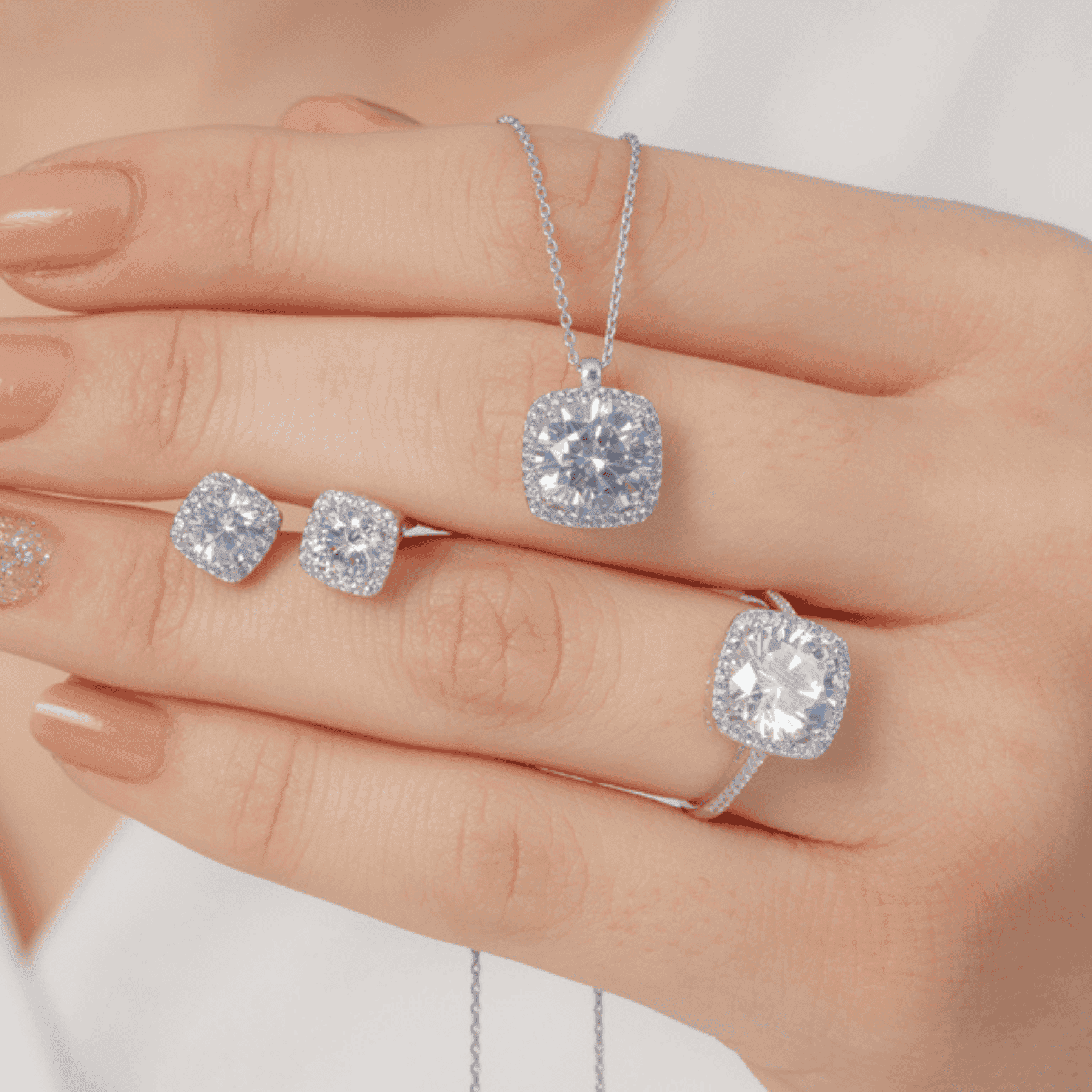
Watches & Jewellery
•04 min read

Ethical jewelry is redefining luxury accessories by offering sustainable and responsible options that let you express your unique style. Our curated collection of ethical jewels celebrates individuality and authenticity, with specially selected pieces that reflect the wearer’s unique style and commitment to responsible fashion. In this blog, we explore the differences between ethical jewels and traditional jewelry. Readers will discover how responsible sourcing, eco-friendly practices, and supporting artisan craftsmanship can create a positive environmental and social impact, all while keeping you at the forefront of style. By the end, you'll have a clear understanding of which option shines brighter for your wardrobe and values.
Ethical jewels center on responsibility, transparency, and the beauty of sustainable practices. These pieces are made with care, often using recycled metal jewelry and eco-friendly materials such as lab-grown diamonds. Ethical jewels focus on responsible jewelry sourcing, which involves ensuring fair treatment for workers and minimal environmental impact. This means that every accessory supports fair trade, from ethical gold to handcrafted ethical jewelry produced by skilled artisans. The curated collections stand as a testament to both ethical standards and aesthetic brilliance.
Key elements that drive ethical jewelry include:
Sustainable Jewelry: Embracing eco-friendly practices to protect nature.
Ethical Gold: Gold sourced with care for both the environment and workers.
Conflict-Free Gemstones: Diamonds and gemstones obtained without unethical practices.
These practices allow ethical jewels to offer sustainable luxury accessories that express individuality and support responsible fashion accessories. Every piece is a blend of style, care, and conscious choices.
Traditional jewelry is steeped in heritage and timeless craftsmanship that has defined luxury for generations. Often, these pieces are crafted with mined materials that have a long history, and they celebrate cultural significance through established techniques. However, traditional techniques sometimes come with environmental concerns, which have raised questions about responsible sourcing. The charm of traditional items is celebrated worldwide, yet their production may not always uphold the transparency and environmental care central to modern ethical practices.
Traditional jewelry benefits from its deep cultural roots and the expertise passed down through generations. Many enthusiasts admire its:
Timeless Craftsmanship: A legacy of skilled design and artistry.
Cultural Significance: Elements that connect with heritage and longstanding traditions.
Market Dominance: A strong presence and recognition in the luxury sphere.
While these pieces continue to enchant with their classic appeal, the methods of sourcing and production could be at odds with today’s sustainable and ethical priorities.

The debate between ethical jewels and traditional jewelry often centers on environmental impact, cost, and craftsmanship. Ethical jewels leverage recycled metal jewelry and lab-grown alternatives to reduce the environmental footprint, while traditional pieces can come with a higher carbon cost due to conventional mining processes. For those who value transparency, ethical options stand out as they highlight responsible sourcing practices and fair trade diamonds. Conversely, traditional jewelry often carries the weight of luxury branding and celebrated design techniques that have withstood the test of time.
Ethical jewels use recycled metals and lab-grown diamonds, which help cut down on ecological harm and resource depletion. Traditional jewelry, by relying on mined materials, can sometimes contribute to deforestation and environmental stress. The shift towards sustainable jewelry is a key trend for modern consumers who want their style to reflect not only personal identity but also a commitment to protecting our planet.
Ethical jewels often use innovative techniques to make luxury more accessible. By employing lab-created gemstones and recycled materials, these pieces can sometimes be more affordable than traditional options, which often command higher prices due to the rarity of naturally sourced materials. This affordability makes ethical fashion accessories an appealing choice for those who seek both style and value.
Both ethical and traditional jewelry offer excellence in craftsmanship. Ethical jewels emphasize handcrafted ethical jewelry that reflects uniqueness and supports artisan communities, while traditional jewelry benefits from refined techniques and a rich legacy of design. Homegrown designer wear and innovative collections are reshaping what luxury looks like, with ethical alternatives affirming that sustainability and style can coexist beautifully. Consider exploring ethical fashion accessories to discover pieces that combine beauty and responsibility.
Insight Corner: Did You Know? Ethical jewelry brands are pioneering innovations like lab-grown diamonds and ethical gold, which significantly reduce environmental impact compared to traditional mining methods. These innovations are setting new benchmarks in sustainable luxury accessories, making it easier than ever to choose pieces that sparkle with both beauty and conscience.
When it comes to selecting jewelry, your values and priorities play a significant role. The choice between ethical jewels and traditional jewelry depends on what matters most to you. Consider whether sustainability is a top priority, if you value the transparency in material sourcing, or if you are more drawn toward classic designs. This reflection helps ensure that your style not only enhances your look but also aligns with your personal ethics.
Before making a decision, ask yourself a few questions:

Sustainability: Do you prioritize eco-friendly practices in your wardrobe?
Transparency: How important is it for you to know that your jewelry is responsibly sourced?
Style: Are you drawn to contemporary designs with a modern twist, or do you prefer the traditional aesthetics steeped in heritage?
Balancing these factors can help you choose ethical jewels that not only make a fashion statement but also contribute to a better, more sustainable world.
Ethical jewelry refers to accessories crafted from responsibly sourced materials, ensuring fair treatment of workers and minimal environmental impact.
Lab-grown diamonds and conflict-free gemstones are ethical alternatives that avoid the complexities of traditional mining.
Many traditional pieces rely on mined materials; however, some efforts are being made toward responsible practices, though they may not always match the eco-friendly benefits of ethical jewels.
Ethical gold is often sourced through fair mining practices or certified fairmined gold, which supports both environmental sustainability and worker welfare.
Both ethical jewels and traditional jewelry bring unique qualities to the table, yet ethical options have emerged as a sustainable, stylish alternative that echoes modern values. With a focus on sustainable jewelry, ethical gold, and conflict-free gemstones, ethical accessories empower you to make choices that are as conscientious as they are beautiful. This melding of style and responsibility highlights a future where fashion is an extension of personal identity and impact. Discover the charm of ethical craftsmanship and let your jewelry reflect your values as confidently as your style.